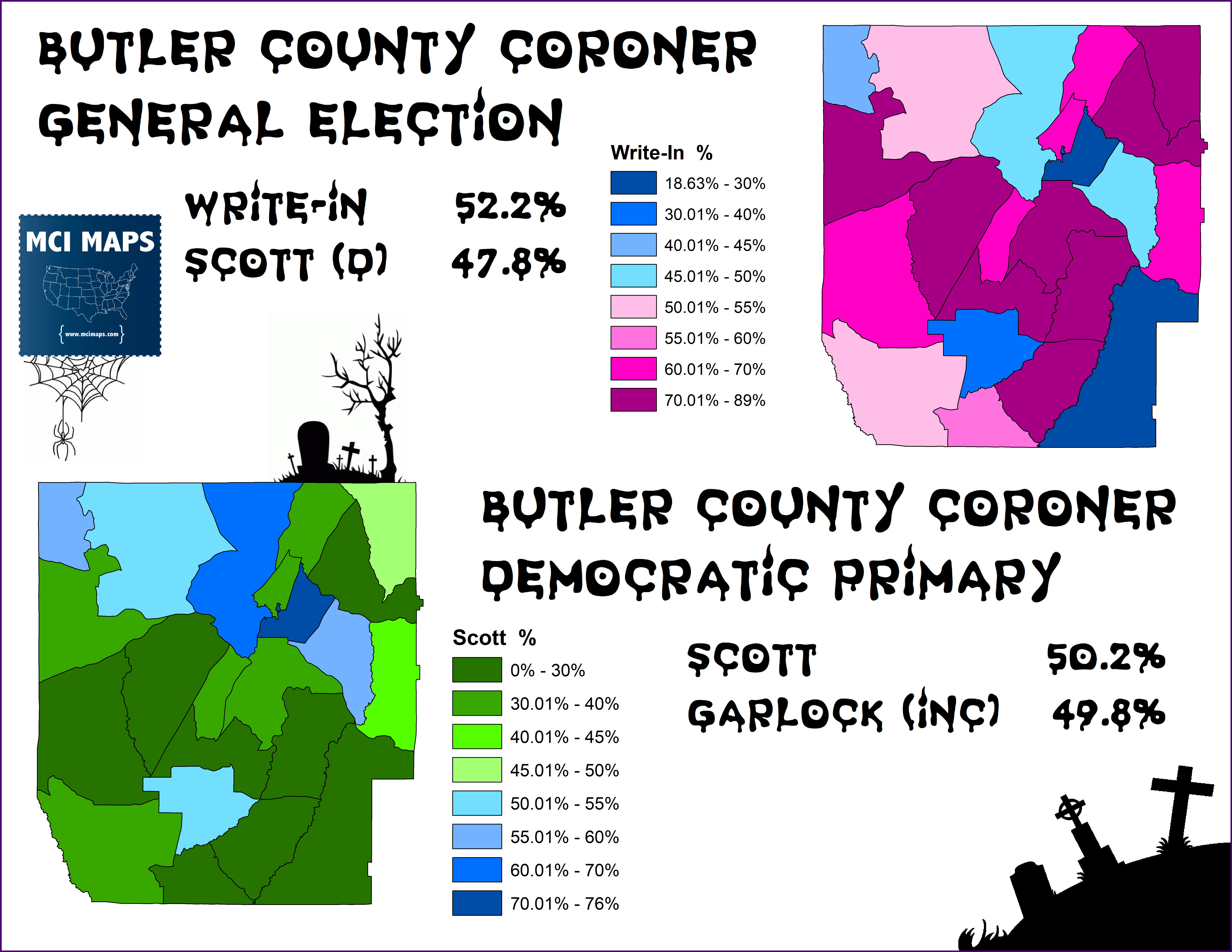Elected Coroners in Alabama
When I did my first analysis of Coroner Elections in America, I found that Alabama still had more Democratic coroners than Republicans.
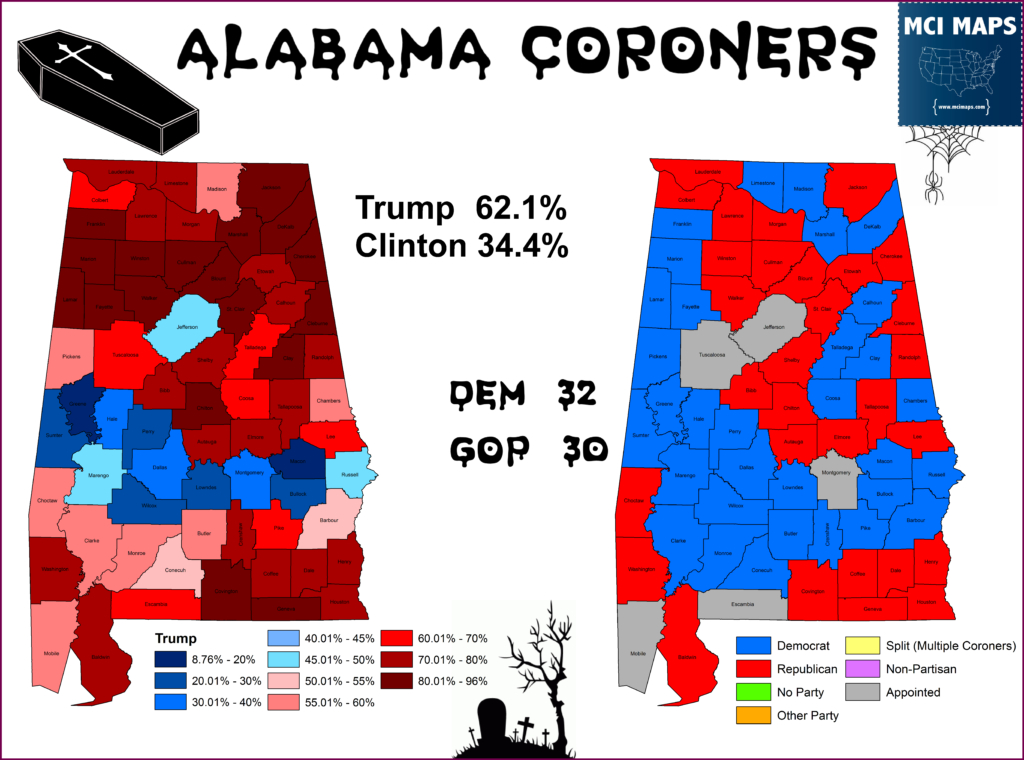
This news was perhaps not especially surprising if you know about southern politics. Places like Alabama used to be much more blue at the state level while voting red in federal races. Alabama’s legislature was Democratic controlled until 2010. The shock win of Doug Jones in the Alabama US Senate special election also showed the state had some Democratic roots. Indeed, many local offices are still Democratic – often thanks to longtime incumbents with good will. However, each election cycle appears to eat away at these local Democratic advantage. Incumbents retire, lose, or switch parties – and counties solid for the GOP for federal office are voting more GOP down-ballot as well.
The 2018 elections were not kind for Democratic coroners. The Republicans gained a net of 10 offices – all from counties Trump won in 2018.
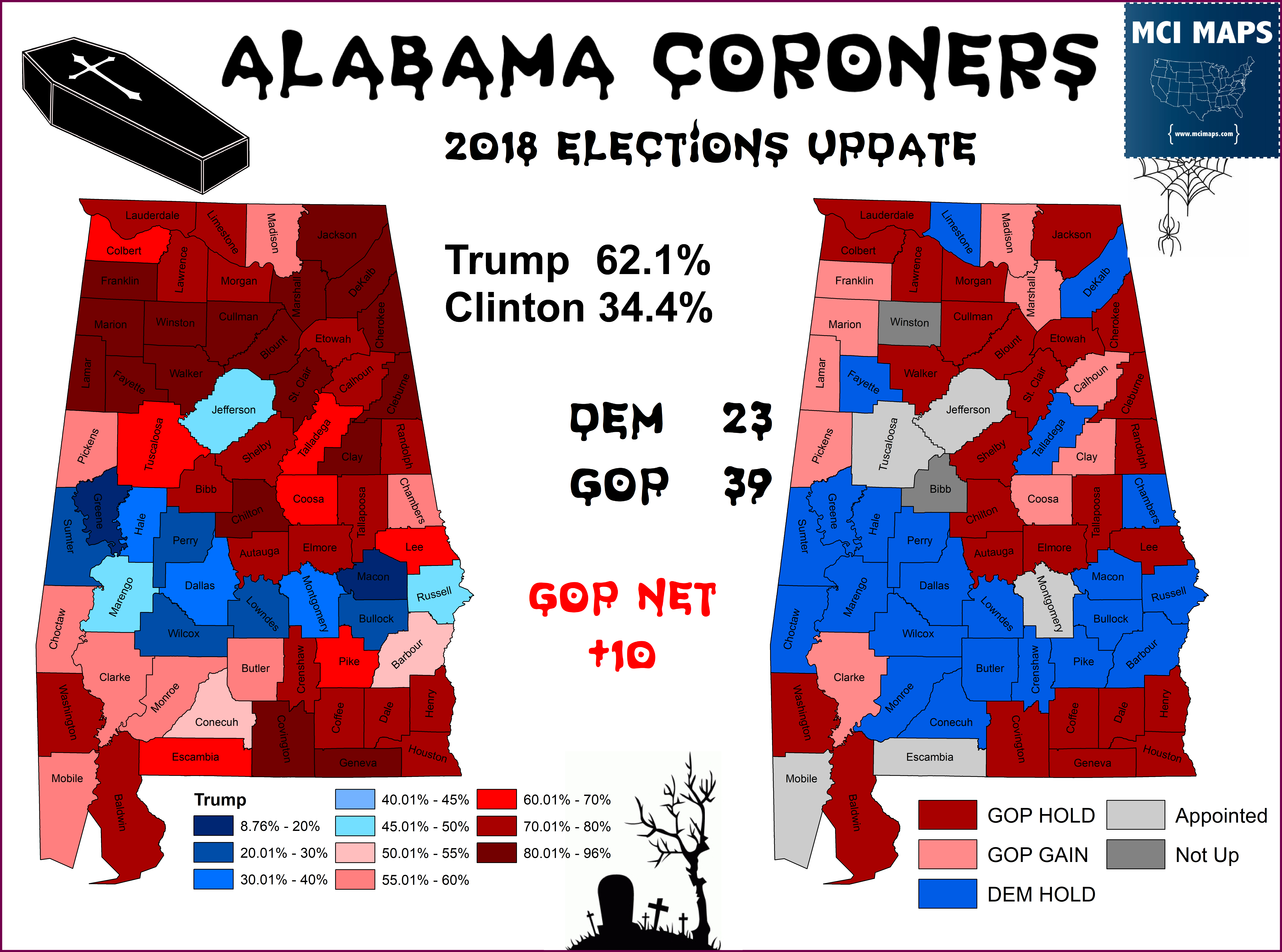
Several pickups were in deep red counties. These gains are not especially surprising. Notably in Madison, a large county that backed Trump but also Democratic Senator Doug Jones, the Republicans gained the office with no Democratic challenger.
The results meant Democrats held 23 Coroner offices to the GOP’s 39. Though one county, Butler, was a little harder categorize. The race there had seen it Democratic coroner lose a primary, but then a win a general in a rare Write-In victory!
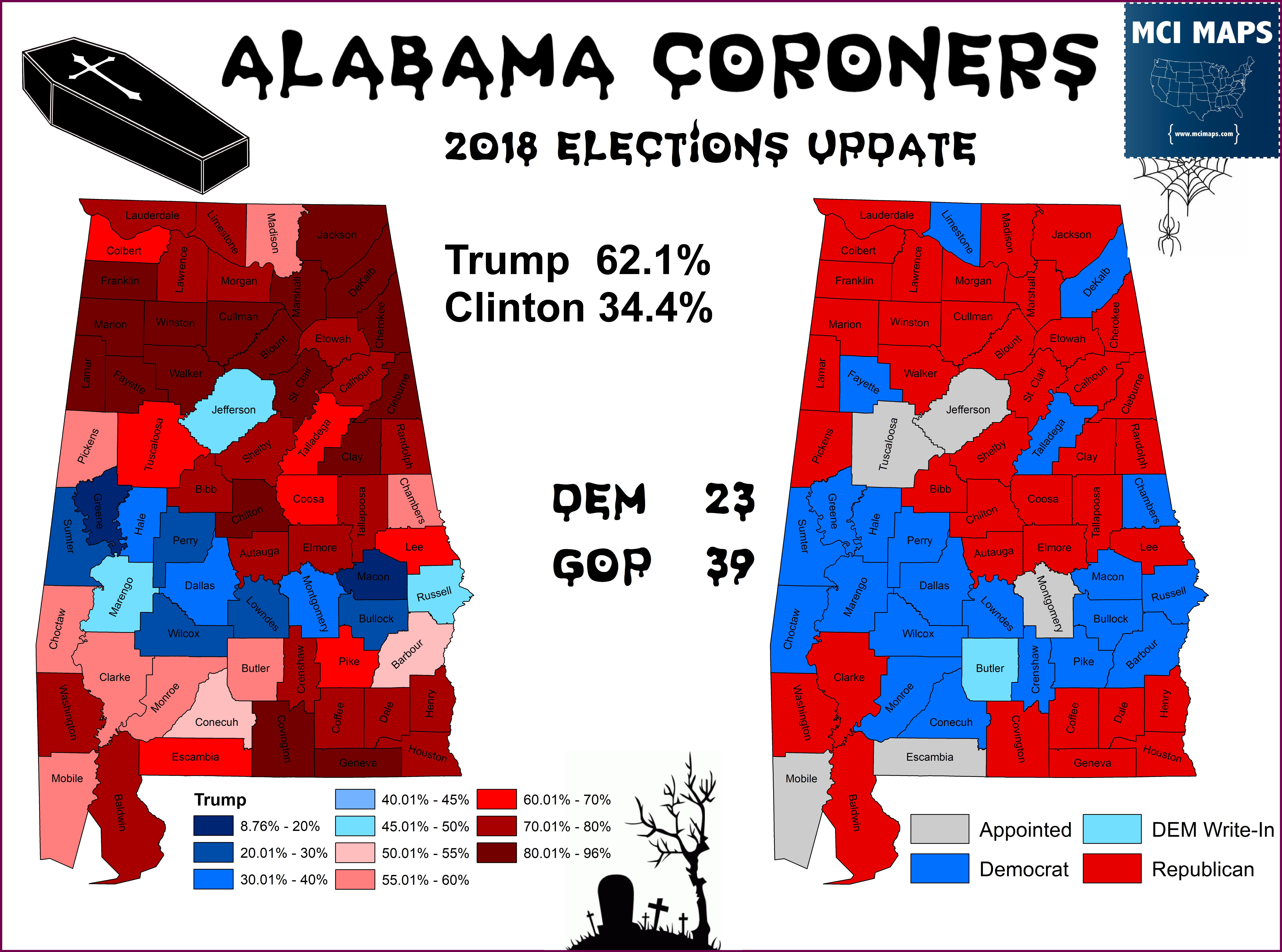
While it was not a win on the Democratic party line, the fact that the candidate was a democratic incumbent who lost his primary, and otherwise would have been running as a Democrat, I counted that as a win for the blue.
But that fun stat (write-in wins are very rare) made me want to investigate that race more. It was a fascinating situation.
Butler County, Alabama
Butler County, Alabama is a small – largely rural – community on the border of Alabama’s “Black Belt.” The population hovers around 20,000. Demographically, the county is very mixed – 54% white and 43% African-American. The African-American population is most prevalent in the towns of Greenville and Georgiana.
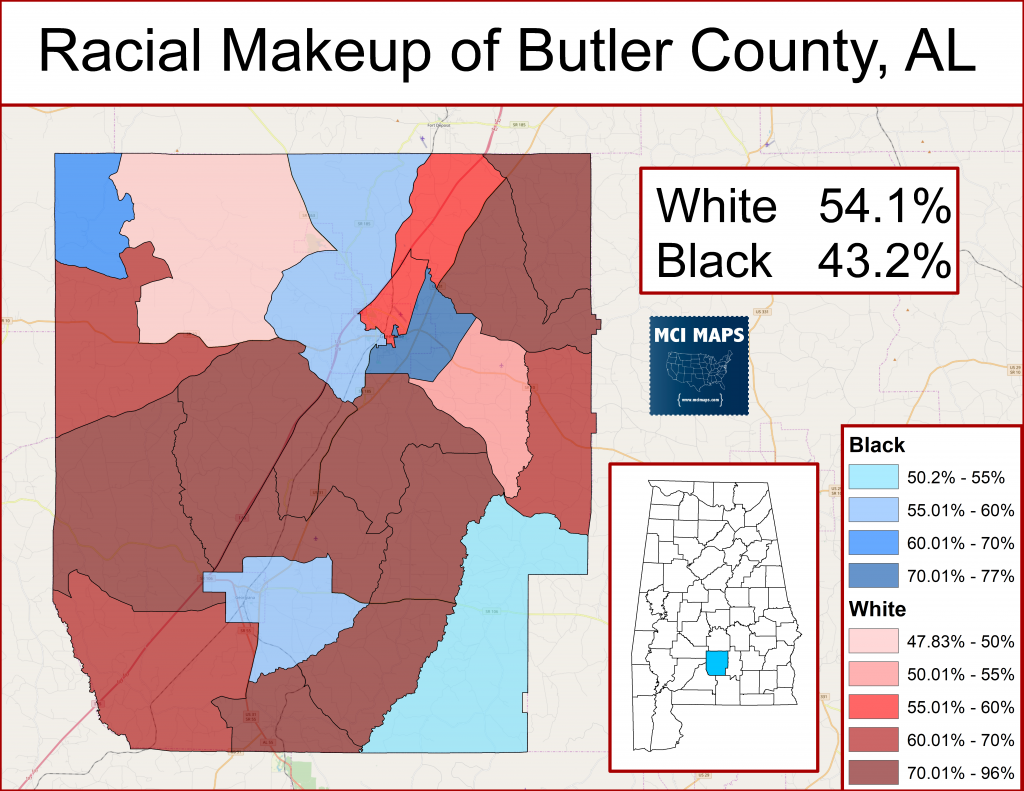
Despite this racial diversity, the county is pretty consistently Republican. Racial polarization, which sees whites vote nearly as unanimously Republican as African-Americans vote Democratic, means that a modest white majority = a modest GOP majority. Trump took 56% in the county and the last Democratic Presidential candidate to win it was Bill Clinton in 1976.
Changing Politics in Butler County
In 2018, the County Sheriff and County Coroner offices were up for election. Both featured white, Democratic incumbents who were in their offices for several terms. Butler County overall leaned Republican but still had an overall Democratic edge locally. Both Sheriff Kenny Harden and Coroner Wayne Garlock faced primary challenges from African-American democrats.
Two things are important for understanding what happened in 2018. First, Alabama does not have party registration. Rather, voters can chose which primary they want to vote in each election cycle. Second, like much of the deep south, Alabama’s strong racial polarization means its white voters are casting ballots in GOP primaries more and more – leading to Democratic primaries being more and more African-American. This results in Butler’s GOP edge in general and also meant that a Democratic primary would be far more African-American than it would be white. While we don’t have exact turnout data, its clear to me that the primary makeup was majority black in 2018.
Harden’s opponent, Carlton Cook, was the police chief in Georgiana. Garlock’s opponent, Ollie Scott, worked for funeral homes across the county. Both went on to win their respective primaries – knocking off the incumbents.
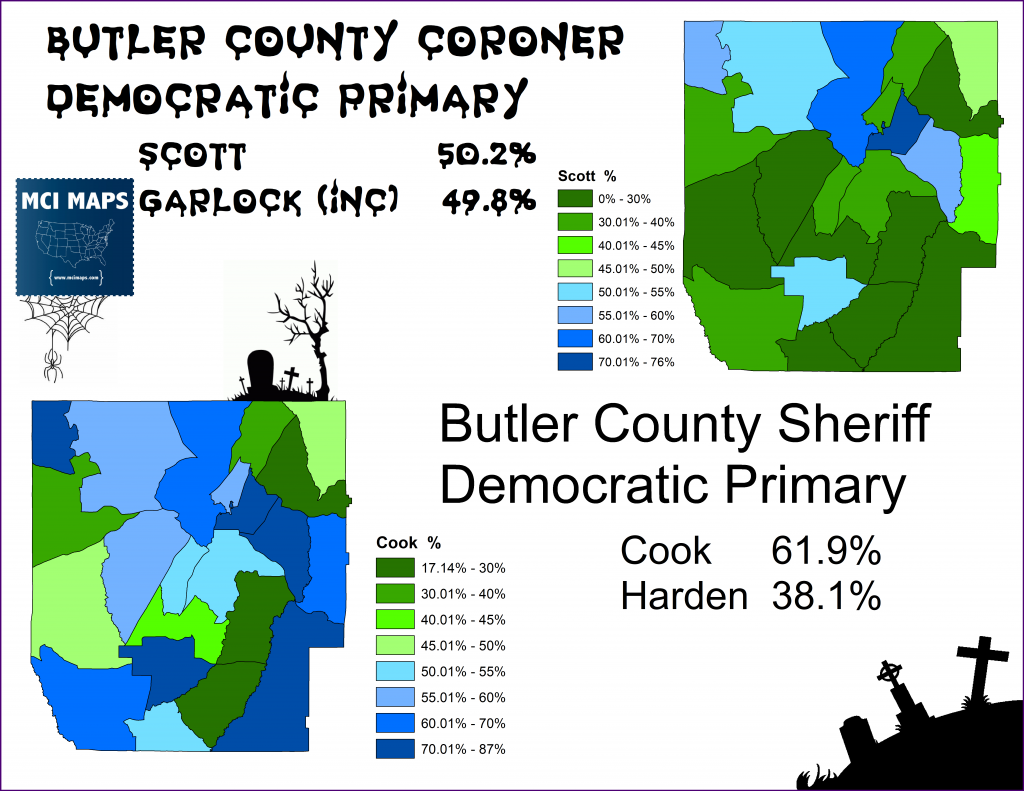
Cook did far better than Scott, partially thanks to stronger showings in the southern portion of the county; where he was police chief. Cook still had a Republican opponent to beat, but no candidate had filed in the general for Coroner. It was believed Ollie Scott was the Coroner-elect; which would have made him the first African-American county-wide elected official in Butler County history.
However, in September, Ollie Scott was arrested for menacing charges after a dispute with a neighbor got heated. Scott’s neighbor alleged a gun was pulled, but the charges were later dropped. Meanwhile, backers of Garlock were trying to convince him to file as a write-in candidate. In October, just one month before the election, Garlock went ahead and filed to run as a write-in.
In an amazing turn of events, Garlock won the general as a write-in, taking many of the same areas he took in the primary.
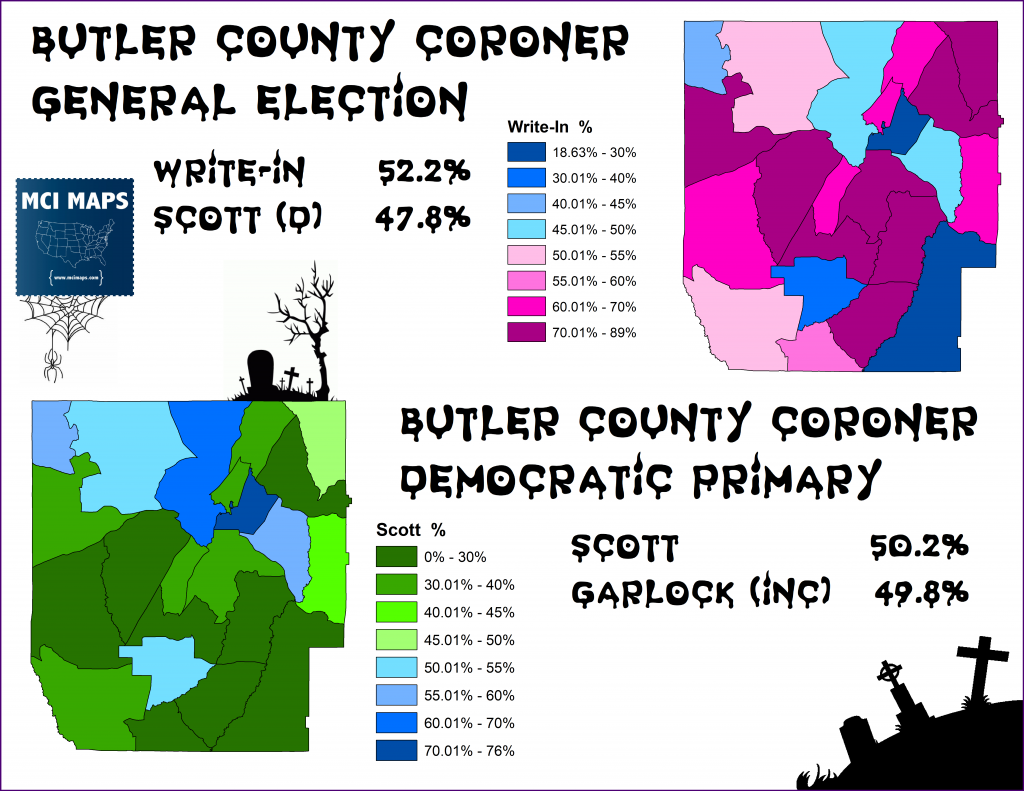
On its surface, it may seem like a good example of experience winning out. Garlock was good at his job, had the experience, and Scott really had nothing bad to say about him. Garlock apparently did not take his primary seriously and was stunned by the loss. For folks who advocate for these offices to not be elected and subject to partisan pressures; this victory of a public servant could seem like a feel good story. A moment when policy trumped politics.
But looking at that race and the other elections in Butler, it does appear partisan leanings played just as much a role in the general as they did in the primary.
More Partisan Than It Seems
I decided to look at the precinct data of the Butler coroner election and see how it compares to other races. The first comparison – to the 2016 Presidential election – shows similar maps. Garlock’s wins came from areas that backed Donald Trump two years earlier.
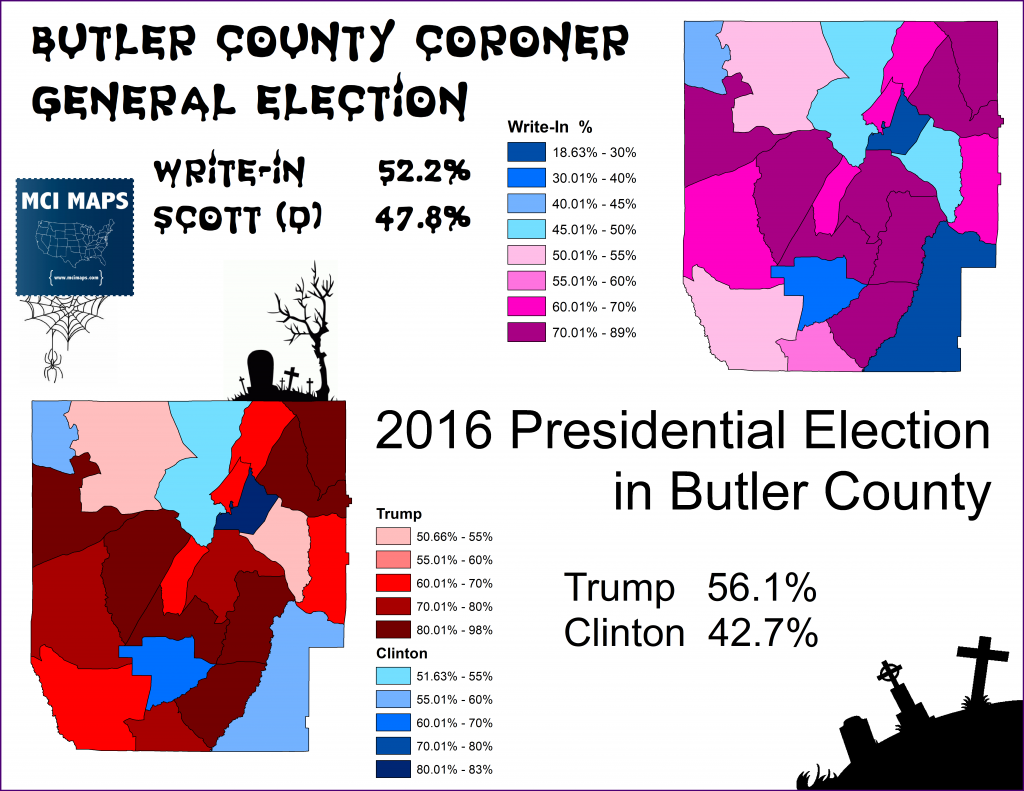
I then looked at the precinct data comparing the coroner race to the Sheriff election. Democratic Primary winner, Carlton Cook, also failed in his general election – losing handily to the Republican challenger. The margin was bigger, but the precinct makeup looked similar.
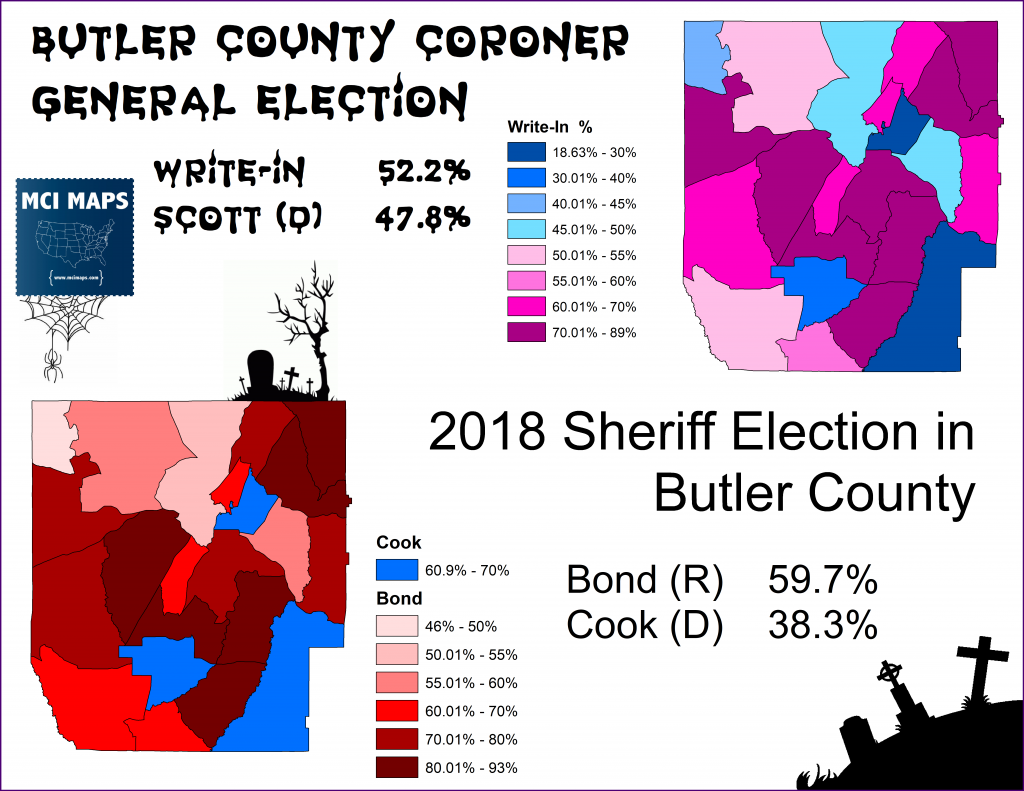
The 2018 Alabama Governor race saw a similar GOP win in the high 50s, the precinct data again looked similar.
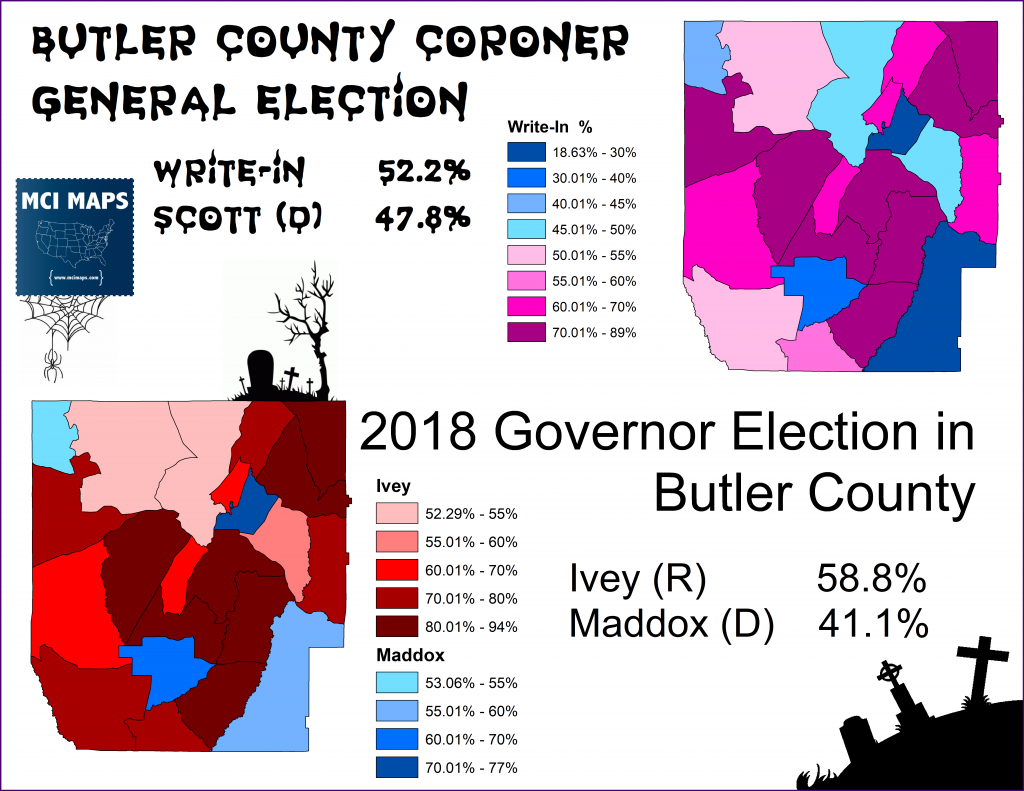
Overall, the precinct data shows similar vote loyalties for Coroner, Sheriff, and Governor. Garlock won areas that were voting GOP for Gov/Sheriff while the most democratic precincts were sticking that way across the board. The scatter-plot below shows how strongly the votes for Sheriff and Coroner correlated with votes for Governor. Bond (Sheriff) and the Garlock Write-In vote both had over 90% correlations with the Ivey vote.
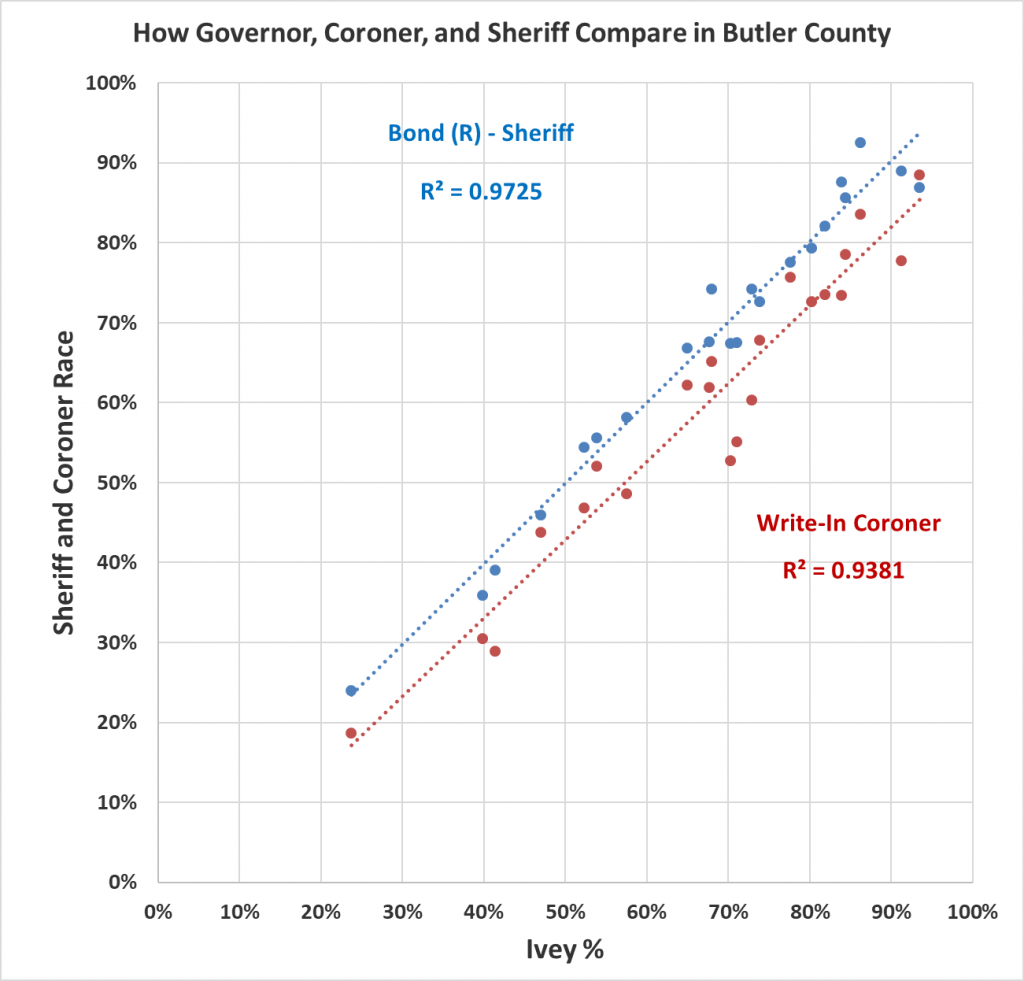
In general, Garlock’s write-in support tracked a few points lower than the vote for Bond and Ivey – and that is reflected in the fact he got just 52%. The connection, however, is still clear.
One data point that accounts for the weaker Garlock percent of the vote is the drop-off in raw votes for that race. When you look at these three races side-by-side, you see that Ollie Scott only got a few hundred more votes than his Democratic counterparts in the Sheriff or Governor races. What really caused Garlock to perform weaker than other Republicans was that many GOP voters simply didn’t cast ballots in that race.

About 1,000 people voted for Sheriff but didn’t vote for Coroner and it really looks like many of those where Republican loyalists who just didn’t know they had a real write-in option. Garlock essentially became the GOP candidate in this race. If voters knew about the write-in campaign, then Republicans generally voted for him, while Democrats appeared to stick with Scott.
So when we look at the race in more detail, we see that Garlock’s write-in bid really became the de-facto GOP campaign. Garlock himself may opt to run as a Republican in 2022 – if he runs again. For now I keep the Butler Coroner office listed as “Democrat Held” – but there is big * next to that classification.
This also proves to be an important lesson when it comes to these offices being elected. Even what seemed like a feel-good story of a qualified incumbent being trusted by the voters, turns out to be just as partisan driven as many other races on the ballot.

